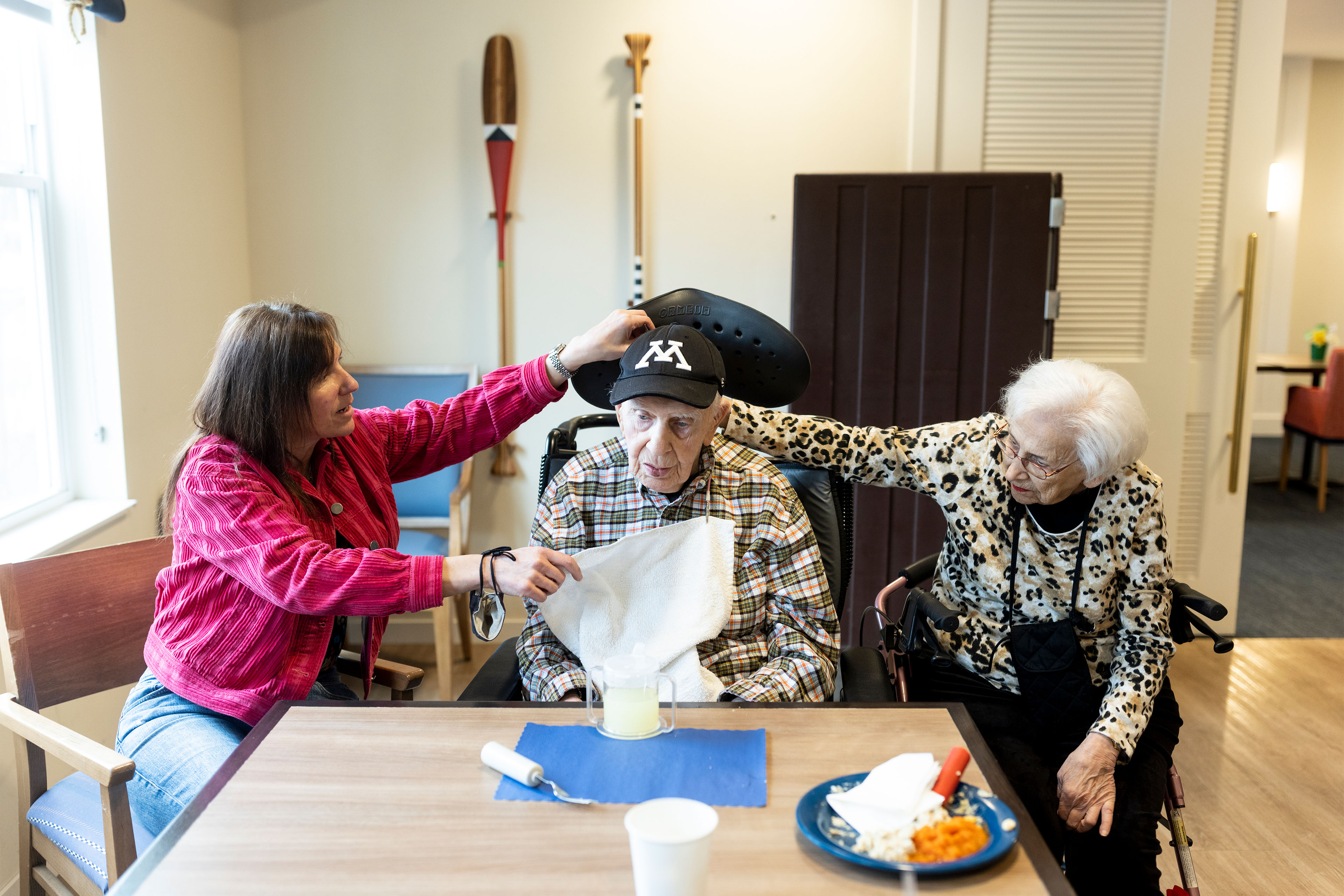Compare the top Assisted Living facilities in your area today.
Compare the top Assisted Living facilities in your area today.
Blog Article
Exactly How Helped Living Facilities Enhance Quality of Life for Those With Dementia
Aided living facilities play a critical duty in improving the high quality of life for people with dementia by applying tailored care methods that deal with their distinctive demands. These settings combine organized tasks with psychological support, cultivating a sense of area while making certain safety and freedom. The assimilation of appealing programs and family involvement additionally improves the locals' experience. Yet, the intricacies of dementia treatment remain to develop, motivating a closer assessment of how these centers adjust and innovate to meet the difficulties encountered by homeowners and their families. What effects does this have for future care versions?
Personalized Treatment Program
(Memory Care Facility Charlotte)In a lot of cases, people with mental deterioration need tailored assistance that addresses their special demands and preferences. Customized treatment strategies are vital in assisted living setups, as they make certain that each resident obtains ideal focus and services. These plans are developed collaboratively, involving healthcare experts, caretakers, and member of the family to create a comprehensive overview of the person's case history, cognitive capabilities, and personal interests.
A well-structured personalized care plan generally includes specific goals associated with wellness administration, everyday activities, and social involvement. It accounts for the individual's cognitive decrease while advertising self-reliance and self-respect. Normal assessments and updates to the treatment strategy are important, as they permit for modifications based on the homeowner's advancing problem and preferences.
Key components of these strategies usually entail medicine management, behavioral assistance methods, and nutritional standards customized to the person's demands (Assisted Living). By concentrating on individualized care, assisted living facilities can promote a supportive setting that boosts the high quality of life for individuals with mental deterioration, eventually adding to their overall health and happiness. This personalized strategy respects the individuality of each homeowner, guaranteeing they receive the thoughtful treatment they call for

Involving Activities and Programs
Involving residents in purposeful activities and programs is critical for improving the lifestyle for individuals with mental deterioration. These activities not only offer enjoyment however also stimulate cognitive function and promote social communication, which can mitigate feelings of isolation frequently experienced by citizens.

Additionally, customized programs are important in making sure that each homeowner's one-of-a-kind choices and abilities are recognized. This customized strategy urges participation, enhances self-esteem, and supplies a feeling of success.
Moreover, normal analyses of homeowners' passions can aid team change and adjust tasks to much better suit developing needs. By prioritizing interesting activities and programs, helped living centers can substantially improve the overall experience and psychological health of individuals living with dementia.
Safe and Supportive Setting
Developing a secure and helpful atmosphere is vital for individuals with mental deterioration, as it directly influences their wellness and lifestyle. Assisted living centers are created with particular features that advertise safety and security while cultivating a complacency and convenience. These atmospheres prioritize accessibility, with designs that reduce confusion and motivate independence, permitting citizens to navigate their environments a lot more easily.
Safety steps, such as secure entries and exits, protect against roaming and unapproved accessibility, which are important considerations for people with dementia (Assisted Living). Personnel are trained to acknowledge the unique requirements of residents, providing customized support and supervision to guarantee their safety. The consolidation of relaxing colors and familiar items can aid lower stress and anxiety and disorientation, developing a more reassuring environment.
In enhancement to physical safety, psychological support is vital. advice Facilities often utilize staff that are not just knowledgeable in caregiving but likewise educated in empathy and interaction, promoting trust fund and relationship with residents. This holistic technique adds to a caring setting where individuals really feel valued and recognized, inevitably boosting their total quality of life.
Social Interaction and Area
A supportive atmosphere not only prioritizes security however also fosters chances for social interaction and neighborhood interaction, which are essential for individuals with dementia. In assisted living facilities, structured activities and communal areas urge homeowners to get in touch with one an additional, reducing sensations of seclusion frequently experienced by those with cognitive impairments.
Social interaction plays a significant role in boosting emotional wellness and cognitive function (Assisted Living). Engaging with peers in group activities such as video games, arts and crafts, or workout not only stimulates cognitive abilities yet also nurtures a sense of belonging. Facilities often arrange occasions that promote socializing, enabling locals to construct relationships and share experiences, which can be especially valuable for those with dementia
Moreover, a vivid area environment can improve the general high quality of life for residents. Personnel are trained to assist in communications and support locals in forming meaningful connections. By developing a culture of engagement, aided living centers aid people with dementia keep social skills and improve their mood, inevitably adding to a more meeting life experience. This community-oriented method is essential in taking care of the difficulties connected with mental deterioration, promoting a feeling of purpose and connection for residents.
Household Participation and Support
Household participation is important in supporting people with dementia in assisted living atmospheres. Proactively engaging member of the family not just supplies emotional convenience to homeowners however also promotes a feeling of belonging and connection in their lives. When families participate in treatment planning and everyday tasks, they add useful insights regarding the person's choices, history, and needs, which can enhance personalized treatment.
Moreover, regular household brows through can dramatically improve the emotional wellness of homeowners, reducing feelings of seclusion and anxiety. Relative can likewise aid in preserving cognitive function by involving their liked ones in familiar conversations and activities. This communication reinforces individuality and helps locals really feel valued and understood.

Verdict
In verdict, helped living centers substantially enhance the top quality of life for people with mental deterioration through individualized care strategies, engaging activities, and a secure environment. Collectively, these factors create an all natural technique to care that addresses the distinct demands of individuals with mental deterioration, advertising overall wellness and dignity.
Report this page